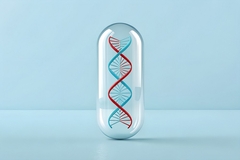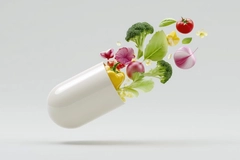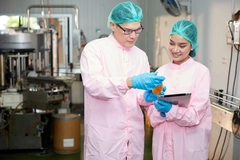Ready meals set for personalization as sector shakes off negative perceptions
28 Feb 2020 --- Despite the negative associations many have surrounding the nutrition of ready meals, the increasingly health-conscious consumer presents industry opportunities for the sector. As interest in personalized nutrition reaches a fever pitch, ready meal companies are also set to offer more customizable choices. Additionally, positionings including high-protein and low-sugar are also proliferating. NutritionInsight speaks to key movers in the space to learn more about how ready meals are fighting to stay in the nutritional game.
“It doesn’t help that there is a general perception that ready meals are perhaps over-processed and low on quality. These negative connotations are greater when applied to the frozen ready meal sector. However, with modern technologies, frozen shouldn’t mean a reduction in quality. If anything, frozen foods contribute to waste reduction, a highly relevant topic in today’s market,” states Samuel Russell, EMEA Marketing Manager of Univar Solutions.
These associations surrounding ready meals are particularly impactful as consumers are increasingly mindful of what they consume. Renata Azevedo, Strategic Marketing Manager at Biorigin, notes that the company is aiming to develop solutions that help the food industry to serve this new consumer who wants to eat healthily, but without losing the taste and pleasure of eating.
“Over the past five years, the trend toward health and wellness has gone mainstream in the food industry. Consumers are looking for foods that support a balanced diet with increased nutritional benefits based on different lifestyles, health issues or even individual occasions,” highlights Jean-Christophe Chevalier, Savoury Global Category Director at Diana Food.
Many people see ready meals as over-processed and low on quality.Personalization enters ready meals
Chevalier continues that ready meals have become more personalized based on consumer profiles in terms of age, sex, ethnicity and lifestyle. “With personalized nutrition on the rise, we see this trend set to increase in the coming years. We will see more segmentation and connections with consumer profiles with details, facilitated by digitizing and connected devices.”
He also predicts the rise of customization involving a variety of formulations, formats and packaging that will cater to all individuals. This is in line with the broader rise of personalized choices across the nutrition sector. Supplements are increasingly targeting specific health conditions as different age groups focus on various health and diet aspects, notes Innova Market Insights.
Active in this space is LifeFuels, the creator behind what is marketed as the world’s first “smart nutrition bottle that adapts to the rest of your day.” The LifeFuels smart bottle is engineered to turn ordinary water into a beverage packed with flavor, vitamins and nutrients and pairs with a smartphone app that helps consumers set, visualize and track their hydration and nutrition goals.
Health claims proliferate
Consumers are increasingly prioritizing health, with Innova Market Insights’ 2018 lifestyle and attitudes survey revealing that three in four US consumers made changes to their diet to try to be healthier, including reducing intake of sugar, fat and calories, while increasing protein. Additionally, 39 percent of US consumers are also increasing their fruit and vegetable consumption in order to be healthier.
This has carried over into the ready meal sector, with the market researcher reporting a 30 percent growth in ready meal launches with a High and/or Source of Protein claim (Global, 2018 vs. 2017). Additionally, there has been a 24 percent growth in ready meal launches that include pulses (Global, 2018 vs. 2017).
Avzedo notes that the food industry is being driven by the clean label trend, which has seen the rise of launches with claims including healthy and natural, as well as reduced or free from sugar, salt, fat or additives. “Consumers are becoming increasingly aware of what they eat and drink; they are checking labels.”
Opportunity remainsThere is opportunity to promote more protein claims in ready meals.
Russell of Univar notes that there is still space for companies to address these demands. “Intriguingly, there could be an opportunity within the sector to deliver and promote more protein claims in ready meals. This is something we’ve seen being of interest to consumers, but in reality, it hasn’t yet translated into NPD. The rise of pulse-based proteins, such as pea, ties in nicely with the vegan trend too.”
As part of World Pulses Day earlier this month, the United Nations (UN)’s Food and Agriculture Organization (FAO) highlighted how pulses can be used as a tool in addressing food insecurity. They boast a formidable nutritional profile, including higher levels of protein, dietary fiber and minerals than all the major cereals. The FAO also recently embarked on a three-year partnership with the Global Pulse Confederation (GPC) to promote the cultivation of crops including lentils, dry beans, dry peas and chickpeas.
However, Russell does note that despite the pulse potential, certain vegan foodstuffs hold a stigma as being high in fat, sugar and salt. “Therefore, manufacturers must ensure they do what they can to dispute these claims. For example, our organic seaweed has natural glutamates and can aid the battle against salt from both a flavor and a shelf life-enhancing perspective,” he concludes.
Nonetheless, the ready meal sector is facing increasing difficulties despite consumers being under a greater time-crunch than ever before. Instead, snacking is on the rise, with the ready meal industry grappling to win consumers back.
By Katherine Durrell












